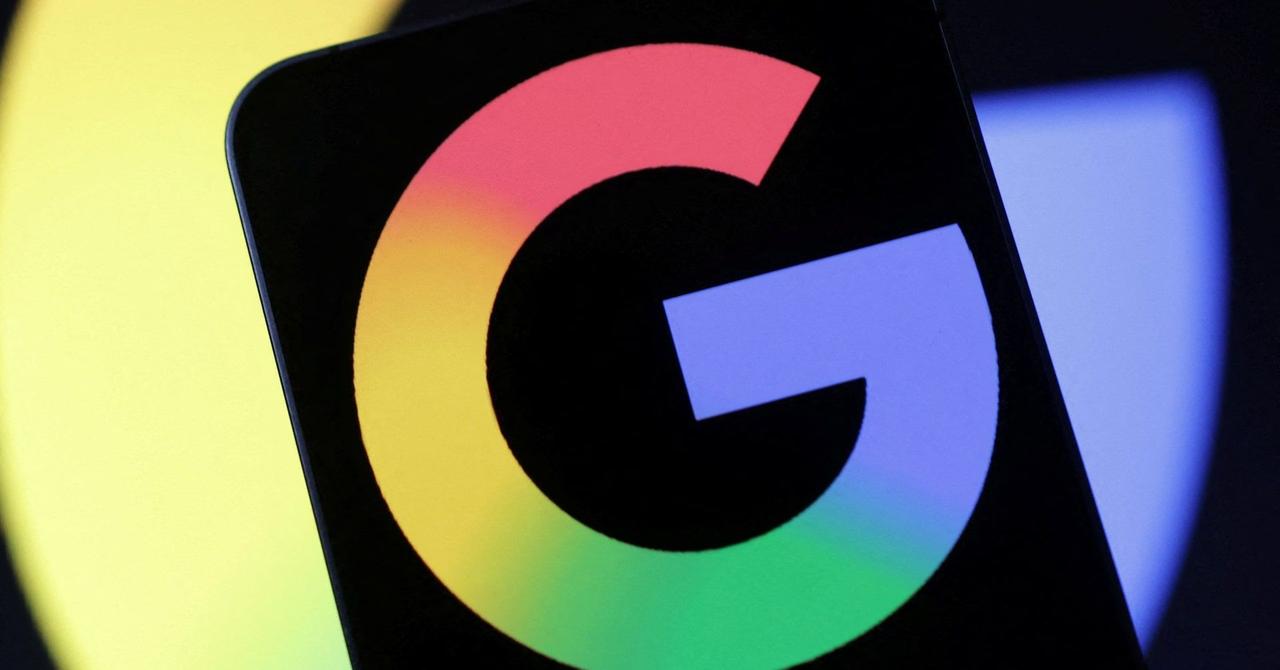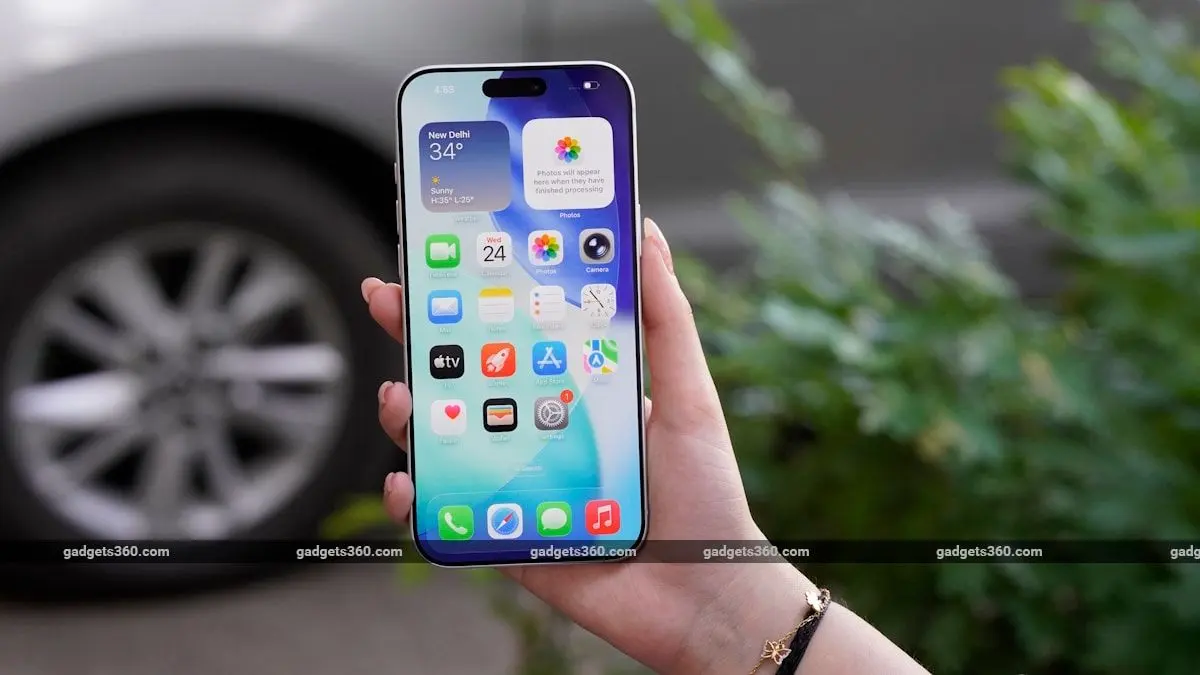U.S. Government and Google Clash Over Remedies for Search Monopoly as AI Reshapes the Landscape
2 Sources
2 Sources
[1]
U.S. v. Google: What Both Sides Argued in a Hearing to Fix Its Search Monopoly
Sign up for the On Tech newsletter. Get our best tech reporting from the week. Get it sent to your inbox. For the past three weeks, the Justice Department and Google have questioned more than two dozen witnesses to try to sway a federal judge's decision over how to address the company's illegal monopoly in internet search. On Friday, that hearing in the U.S. District Court for the District of Columbia is expected to conclude. To fix the monopoly, the government has proposed aggressive measures that include forcing Google to sell its popular Chrome web browser and share proprietary data with competitors. Google has argued that small tweaks to its business practices would be more appropriate. Both sides will offer closing arguments at the end of the month. Judge Amit P. Mehta, who is presiding over the case, is expected to reach a decision by August. His ruling could have significant implications for Google, its rivals and the way that people look for information online. Here's what to know about what was argued at the hearing. What case does the hearing stem from? In August, Judge Mehta ruled that Google had broken antitrust law when it paid companies like Apple, Samsung and Mozilla billions of dollars to automatically appear as the search engine in browsers and on smartphones. He also ruled that Google's monopoly allowed it to inflate the prices for some search ads, adding to its unfair advantage. Judge Mehta convened the hearing last month to determine how to best address the search monopoly through measures called remedies. Executives from Google, rival search engines and artificial intelligence companies -- alongside experts -- testified about Google's power over the internet. What did the government argue? The only way to end Google's dominance in search is by taking significant action, government lawyers said at the hearing. Lawyers argued that Google should be forced to spin off Chrome and share search results and ads with rivals, allowing them to populate their own search engines. Other search engines and some artificial intelligence companies should get access to data on what Google users search for, as well as the websites they click on. The government warned during the hearing that if Judge Mehta didn't take action, it could propel Google into dominance of another technology, artificial intelligence. Search is in upheaval as A.I. and chatbots, like Google's Gemini, change the way people find information on the web. "This court's remedy should be forward looking and not ignore what's on the horizon," said David Dahlquist, the government's lead litigator. "Google is using the same strategy that they did for search and now applying it to Gemini." Eddy Cue, an Apple executive called as a witness by Google, said that "in the past two months for the first time in over 20 years," Google search queries had declined in the company's Safari browser for the first time. He attributed the drop to the growth of A.I. What did Google argue? Google's lawyers said the government's proposal would endanger products that consumers love and imperil privacy and security for internet browsing. "I think it definitely will have many unintended consequences," testified Sundar Pichai, Google's chief executive. Sharing Google's data with its competitors would undermine the privacy of its users, the company's lawyers said. They pointed multiple times to a 2006 incident in which AOL released search data to aid academic researchers. Journalists were able to use leaked data to identify an individual based on her searches. There's also plenty of competition in A.I., they said, noting the success of OpenAI's ChatGPT and other examples. Google's lawyers instead proposed that its contracts with web browsers and smartphone companies should offer more freedom to work with competing search and A.I. services. Mr. Pichai testified that Google had already started altering its contracts with other companies to align with its proposal in the case. (The New York Times has sued OpenAI and its partner, Microsoft, for copyright infringement of news content related to A.I. systems. They have denied wrongdoing.) What did other companies say? During the hearing, several Google competitors, including OpenAI and the chatbot company Perplexity, said they would be open to buying Chrome if it was put up for sale. Government witnesses said access to Google's search and ad data would give A.I. companies an advantage as they tried to compete with Google. What did the judge say? When Judge Mehta questioned witnesses throughout the hearing, he provided a window into his thinking. At times, he pushed witnesses to say whether any rivals could compete with Google's search dominance absent the court's intervention. Many of his questions revolved around A.I. and its significance, as Google battles its rivals to develop the technology that has become a major force in the tech industry. When Mr. Pichai was on the witness stand, Judge Mehta said he had observed the rapid development of A.I. since the lawsuit went to trial in the fall of 2023, signaling he was aware of how the growth of the technology had become the backdrop for the hearing. "One of the things that has struck me, Mr. Pichai, about these proceedings is, when we were together not so long ago, the consistent testimony from the witnesses was that the integration of A.I. and search or the impact of A.I. on search was years away," he said, referring to testimony during the 2023 trial. "By the time we've gotten here today, things have changed dramatically."
[2]
US vs Google: What both sides argued in a hearing to fix its search monopoly
In a major antitrust case, the US government and Google clashed over remedies for the tech giant's illegal search monopoly. The Justice Department proposed breaking up Google's business, while Google warned of consumer harm. Judge Amit Mehta's upcoming ruling could reshape online search and AI competition amid rapid industry transformation.For the past three weeks, the Justice Department and Google have questioned more than two dozen witnesses to try to sway a federal judge's decision over how to address the company's illegal monopoly in internet search. On Friday, that hearing in the US District Court for the District of Columbia is expected to conclude. To fix the monopoly, the government has proposed aggressive measures that include forcing Google to sell its popular Chrome web browser and share proprietary data with competitors. Google has argued that small tweaks to its business practices would be more appropriate. Both sides will offer closing arguments at the end of the month. Judge Amit P Mehta, who is presiding over the case, is expected to reach a decision by August. His ruling could have significant implications for Google, its rivals and the way that people look for information online. Here's what to know about what was argued at the hearing. What case does the hearing stem from? In August, Mehta ruled that Google had broken antitrust law when it paid companies like Apple, Samsung and Mozilla billions of dollars to automatically appear as the search engine in browsers and on smartphones. He also ruled that Google's monopoly allowed it to inflate the prices for some search ads, adding to its unfair advantage. Mehta convened the hearing last month to determine how to best address the search monopoly through measures called remedies. Executives from Google, rival search engines and artificial intelligence companies -- alongside experts -- testified about Google's power over the internet. What did the government argue? The only way to end Google's dominance in search is by taking significant action, government lawyers said at the hearing. Lawyers argued that Google should be forced to spin off Chrome and share search results and ads with rivals, allowing them to populate their own search engines. Other search engines and some AI companies should get access to data on what Google users search for, as well as the websites they click on. The government warned during the hearing that if Mehta didn't take action, it could propel Google into dominance of another technology, AI. Search is in upheaval as AI and chatbots, like Google's Gemini, change the way people find information on the web. "This court's remedy should be forward looking and not ignore what's on the horizon," said David Dahlquist, the government's lead litigator. "Google is using the same strategy that they did for search and now applying it to Gemini." Eddy Cue, an Apple executive called as a witness by Google, said that "in the past two months for the first time in over 20 years," Google search queries had declined in the company's Safari browser for the first time. He attributed the drop to the growth of AI. What did Google argue? Google's lawyers said the government's proposal would endanger products that consumers love and imperil privacy and security for internet browsing. "I think it definitely will have many unintended consequences," testified Sundar Pichai, Google's CEO. Sharing Google's data with its competitors would undermine the privacy of its users, the company's lawyers said. They pointed multiple times to a 2006 incident in which AOL released search data to aid academic researchers. Journalists were able to use leaked data to identify an individual based on her searches. There's also plenty of competition in AI, they said, noting the success of OpenAI's ChatGPT and other examples. Google's lawyers instead proposed that its contracts with web browsers and smartphone companies should offer more freedom to work with competing search and AI services. Pichai testified that Google had already started altering its contracts with other companies to align with its proposal in the case. (The New York Times has sued OpenAI and its partner, Microsoft, for copyright infringement of news content related to AI systems. They have denied wrongdoing.) What did other companies say? During the hearing, several Google competitors, including OpenAI and the chatbot company Perplexity, said they would be open to buying Chrome if it was put up for sale. Government witnesses said access to Google's search and ad data would give AI companies an advantage as they tried to compete with Google. What did the judge say? When Mehta questioned witnesses throughout the hearing, he provided a window into his thinking. At times, he pushed witnesses to say whether any rivals could compete with Google's search dominance absent the court's intervention. Many of his questions revolved around AI and its significance, as Google battles its rivals to develop the technology that has become a major force in the tech industry. When Pichai was on the witness stand, Mehta said he had observed the rapid development of AI since the lawsuit went to trial in the fall of 2023, signaling he was aware of how the growth of the technology had become the backdrop for the hearing. "One of the things that has struck me, Mr Pichai, about these proceedings is, when we were together not so long ago, the consistent testimony from the witnesses was that the integration of AI and search or the impact of AI on search was years away," he said, referring to testimony during the 2023 trial. "By the time we've gotten here today, things have changed dramatically."
Share
Share
Copy Link
A federal hearing concludes on how to address Google's illegal search monopoly, with the government proposing aggressive measures and Google arguing for minor adjustments. The case highlights the growing impact of AI on the search industry.

Background of the Antitrust Case
In a landmark antitrust case, the U.S. Justice Department and Google have been engaged in a three-week hearing to determine remedies for Google's illegal monopoly in internet search. The case stems from Judge Amit P. Mehta's August ruling that Google violated antitrust law by paying billions to companies like Apple and Samsung to be the default search engine on browsers and smartphones
1
2
.Government's Proposed Remedies
The Justice Department has advocated for aggressive measures to end Google's search dominance:
- Forcing Google to sell its popular Chrome web browser
- Sharing proprietary search results and ad data with competitors
- Granting other search engines and AI companies access to Google user search data and click-through information
David Dahlquist, the government's lead litigator, emphasized the need for forward-looking remedies, stating, "This court's remedy should be forward looking and not ignore what's on the horizon. Google is using the same strategy that they did for search and now applying it to Gemini."
1
Google's Counter-Arguments
Google has strongly opposed the government's proposals, arguing for more modest adjustments to its business practices:
- Warning of unintended consequences that could endanger popular consumer products
- Citing privacy and security concerns related to data sharing
- Proposing more flexible contracts with web browsers and smartphone companies
Google CEO Sundar Pichai testified, "I think it definitely will have many unintended consequences," referring to the government's proposed remedies
1
2
.The AI Factor
The hearing has highlighted the rapid evolution of artificial intelligence and its impact on the search industry:
- Eddy Cue, an Apple executive, reported a decline in Google search queries on Safari for the first time in over 20 years, attributing it to AI growth
1
2
. - Judge Mehta noted the dramatic changes in AI integration with search since the initial trial in 2023
1
2
. - Google argued that there is significant competition in AI, citing examples like OpenAI's ChatGPT
1
2
.
Competitors' Perspectives
Several Google competitors, including OpenAI and Perplexity, expressed interest in purchasing Chrome if it were to be sold. Government witnesses argued that access to Google's search and ad data would give AI companies a competitive advantage
1
2
.Related Stories
Judge's Considerations
Judge Mehta's questioning during the hearing provided insights into his thought process:
- He sought to understand if any rivals could compete with Google's search dominance without court intervention.
- Many of his questions focused on AI's significance and its impact on the tech industry.
- The judge acknowledged the rapid development of AI since the initial trial, indicating its importance in the case
1
2
.
Next Steps
The hearing is expected to conclude with closing arguments at the end of the month. Judge Mehta's decision, anticipated by August, could have far-reaching implications for Google, its competitors, and the future of online information retrieval
1
2
.As the case unfolds, it highlights the complex interplay between antitrust regulation, technological innovation, and the growing influence of AI in shaping the digital landscape.
References
Summarized by
Navi
Related Stories
Google's Search Monopoly Faces Scrutiny as AI Reshapes the Web
30 May 2025•Policy and Regulation

US Government Proposes Sweeping Measures to Curb Google's Search Dominance and AI Advancements
09 Oct 2024•Policy and Regulation

Google Escapes Major Breakup in Landmark Antitrust Ruling, Required to Share Search Data
03 Sept 2025•Policy and Regulation

Recent Highlights
1
French Police Raid X Office as Grok Investigation Expands to Include Holocaust Denial Claims
Policy and Regulation

2
OpenAI launches Codex MacOS app with GPT-5.3 model to challenge Claude Code dominance
Technology

3
Anthropic releases Claude Opus 4.6 as AI model advances rattle software stocks and cybersecurity
Technology





